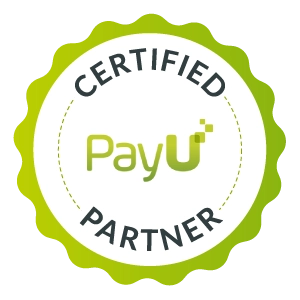Introduction

Generating quality leads is imperative in any investing or brokerage real estate business. This business world of real estate is dynamic, and therefore, your strategies to generate leads must be equally changing. In this detailed guide on how to get more leads for real estate business, we will be talking about some active methods to create a continuous flow of leads for your business.
Target Audience – Know Thy People
Knowing your audience inside out will help with your marketing efforts and messaging. The very first responsibility lies in identifying and defining the client profile, depending on their needs- if they are new customers and want to invest for the very first time, their taste, if they are just investors or someone who is in look out for luxury; and their investing capabilities.
Social Media in Real Estate Lead Generation
The platforms of social media offer huge audiences for real estate professionals and a huge canvas to get more leads for the real estate business. Identify target platforms: Attention is given to those areas where your ideal client is most active—this would be Facebook, Instagram, and LinkedIn. Share engaging content in the form of beautiful property listings, market insights, and community updates. Use social listening to identify potential leads: Monitor conversations and trends to look out for possible leads. Run targeted ads: Use paid social media campaigns to hit specific demographics.
A strong online presence is important in today’s digital age.
Optimize Your Website: You need to make your website user-friendly, mobile-responsive, and full of relevant keywords. Quality content as a blog posts, property listings, and guides about neighborhoods will drive prospects to your website.
Email Marketing for Real Estate
though email marketing can be expensive, a budget must be kept aside for the same in order to reach out to specific profiles and demographics
- Develop a good email list: Offer quality content; users will want to sign up for an email address.
- Segment your list: Tailor your content according to buyer preferences and property interests.
- Develop compelling email campaigns: Use personalized subject lines and engaging visuals.
- Email Workflow Automation: Set up automated email sequences for multiple lead stages.
- Email Performance Tracking: Open rates, click-through rates, conversion rates.
Content Marketing: A Basis for Lead Generation
Content marketing is an ideal process for attracting and keeping leads.
Create Valuable Content: Come up with blog posts, videos, and infographics that will educate and at the same time, entertain the target audience based on their pain points or questions.
Video Marketing in Real Estate
Video marketing is a great way to engage prospective buyers and sellers.
Create property walkthroughs: Allow them to see through a home as if they were walking through it.
Develop information videos: Tips on home buying, selling, or investing.
- Establish your expertise: Provide video interviews or tutorials that prove your expertise in the local market.
- Use user-generated content: Ask clients to share their experiences.
- Optimize for search: Add relevant keywords in the video title, description, and tags.
- Google Ads: You ought to run Google Ads targeting potential clients who would search for terms and demographics relevant to them.
Social Media Ads: Run relevant ads through Facebook, Instagram, or the platform of choice.
Pay-Per-Click Advertising: Consider PPC campaigns on real estate portals. This can generate immediate leads.
Why Local SEO is Important for Real Estate
Local SEO helps rank well for geolocated search terms.
Niche Real Estate Lead Generation:
A niche market provides an area in which to specialize, setting you apart from others.
- Identify your niche: Determine the specific target audience in property type, location, or buyer description.
- Deep knowledge of the markets: Expertise in the chosen niche area helps an agent be recognized as an authority.
- Relationship building with partners: Network with fellow professionals within your chosen niche.
- Specialized marketing materials: Tailor the messaging and visual identity of your marketing campaign and target your niche audience.
- Leverage online communities that are specific to your niche: Join relevant forums or groups.
Real Estate Keyword Research
Optimize your website and content with keyword research.
- Identify relevant keywords: popular search terms can be found by using a keyword research tool.
- Understand the search intent to create valuable content and this will help in the campaign.
- Targets high-volume, low-competition keywords.
- Use keyword variations, synonyms, and related terms.
- Track the performance of these keywords over time and adjust the strategy.
Internal Linking for Real Estate
It helps search engines to understand better, the structure of your website. It gives a good user experience.
- Link to related pages. One has related content within their website.
- Anchor text strategically: Keywords in anchor text help in SEO.
- Give a clean hierarchy to your website: Organize your content in a proper, logical structure.
- Link to older content: Breathe life into valuable pages that are not doing well.
External Linking for Real Estate
External linking builds authority and trust.
- Link out to reputable sources: Justify your claim with a link to credible websites.
- Use relevant anchor text: Keywords in anchor text really help in SEO.
- Guest posting or exchanging links with other sites can help in interactivity. Optimizing images for real estate: Aesthetic and clear images drive the beauty of your site and are partial to search engine optimization.
Compression of images:
Using image files that are optimized in size will help in loading up the image faster than usual.
Descriptive file names: Relevant keywords should form part of the name for image files.
Alt text: Alternative text put in images that describe what is in them; that way, it improves accessibility and SEO.
Optimize the dimensions of images: Make sure images are of the proper dimensions of your website.
Real Estate Meta Descriptions and Title Tags
Metadata descriptions and title tags are essential to be found in a search.
Draft meta descriptions: Describe precisely what’s on your page and include target keywords.
- Unique title tags: Eye-catching headlines, including target keywords.
Keep it short and sweet: Both have character limits.
- Various pages: Each page is unique and has a different meta description and title tag.
If you implement these strategies effectively, you may enhance your lead generation efforts in real estate and achieve enduring success.
Networking and Relationship Building
The key to success in networking lies in building strong, long-lasting relationships within your community.
- Industry Events: Building social relationships with other agents, a new prospective client, and many other professionals from different industries other than real estate who might, at a later stage, be interested in real estate. We can capitalize on these moments at various events, conferences, or even private functions where you are a guest or host.
- Local Organizations: Be active in the local chambers of commerce and community groups.
- Referrals: Ask satisfied clients for referrals to family and friends.
Leverage Technology
Technology will make your lead generation process so much easier and more productive.
- Customer Relationship Management Software: Keep your leads organized and manage them with ease.
- Lead Generation Tools: Use tools designed to capture and qualify your leads.
- Automation: Automate the tasks that take up too much repetitive time to allow time for relationships.
Measure and Analyze
Be sure to measure your lead generation efforts to know what is working and what isn’t.
- KPI’s: Set goals that can be measured.
- Conversion Rates: Be able to track conversion rates to further optimize campaigns.
- Lead Quality: Take a look at the quality of your leads to help in further targeting.
Conclusion
Real estate lead generation requires a multi-pronged approach. The combination of traditional and digital methods offers you a great base. Keep in mind to evolve your tactics with changing markets and to be of extreme value to your client.
More Tips:
Personalize Your Approach: Ensure that you have invested some time in making each lead an individual and tailoring the communication as per their needs.
Follow Up Constantly: Nurture leads through constant follow-up and excellent customer service.
Build Trust and Credibility: You should establish yourself as a trusted expert in your market.
Stay Updated on the Market Trends: Be updated about trends occurring in your industry and any new technologies.
Such strategies will make you succeed in consistently generating leads—no easy task in this competitive real estate market to execute without creativity and fine-tuning.
FAQs
Q: How much does it cost to hire a real estate agent?
A: Most real estate agents charge a commission, which is usually calculated as a percentage of the sale price of property. The average commission rate is 5 percent or 6 percent and is divided between the buyer’s agent and the seller’s agent.
Q: How long does it take to sell a house?
A: How long it takes to sell a house depends upon various factors, which could include market conditions, the condition of the property, and how it is priced. In a seller’s market, maybe just a few weeks; in a buyer’s market, it might take several months.
Q: What is the difference between a buyer’s agent and a seller’s agent?
A Buyer’s agent represents the buyer, and a seller’s agent represents the seller. Both facilitate the transaction but have different priorities for the transaction.
Q: How do I find a real estate agent?
A: Being available when needed, exposure and continuous participation in the same field for years and accumulating expertise and experience, having knowledgeable and interpersonal skills, and being good at communication are some of the key factors that people look for in a real estate agent. In addition, it will be great to add the interviews of several agents to know the best suit your needs.
Buying a Home
Q: How much home can I afford?
A: It depends on your income, credit score, and down payment. Run the numbers through a mortgage calculator to see an estimate of what you can afford with your monthly payments.
Q: What’s a down payment?
A: A down payment is that part of a home’s cost that you pay at the beginning. It usually is expressed as a percentage of the purchase price and it varies by loan type.
Q: What is closing?
A: Closing is the final step in purchasing a home, where ownership of the property is transferred to the buyer. This step involves signing papers, transferring funds, and recording the deed.
Selling a Home
Q: How do I price my house?
A: The most critical thing when selling a house is fair pricing. A real estate agent will give you a competitive price to list similar homes in your area.
Q: What do I need to do to my home to sell it?
A: Some things you can do to get your home sale-ready are decluttering, deep cleaning, repairing what needs fixing, and staging your home to appeal to buyers.
Q: What is a home inspection?
A: The home inspection is a visual examination of the condition of the property provided by an inspector of the buyer. This helps buyers identify possible issues before they buy.
Investing in Real Estate
Q: What are the different ways to invest in real estate?
A: Among the available options for real estate investment, one will find rental properties, REITs, and real estate crowdfunding.
Q: What are some risks associated with real estate investing?
A: Some of the risks in real estate investing include changes in property value, vacancies in rentals, and an economic downturn. Thorough research and diversification are important.
Q: How to calculate the return on investment on a rental property?
A: You can do this by dividing the net operating income per year by the total value of the property.














